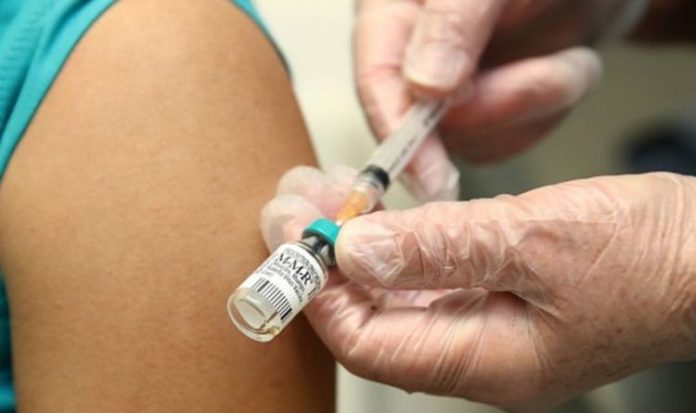Speaking to Times Radio on Wednesday, Ms Bingham said she would be “surprised” if an effective coronavirus vaccine was not available before July 2021. The head of the UK vaccine task force claimed there is a possibility the race to get a vaccine could even come to fruition by the end of 2020. She said: “I think it’s possible that we will see it by the end of the year, because we know that the recruitment will be done by the end of the year.
“So then the question is if we don’t have sufficient cases, then how long does it take?
“That for me is as long as a piece of string.”
She clarified: “I think there’s a possibility we’ll get it at the end of the year.
“But I think it’s more likely it will be early next year.
“I would be surprised if we don’t have at least one effective vaccine before July next year.”
READ MORE: Dr Hilary Jones issues stern warning over Long COVID syndrome
Efforts to develop a vaccine hit snags in some areas, with Johnson & Johnson pausing its trial after an unexplained illness in a study participant. AstraZeneca’s US trial has remained on hold for more than a month.
Russia, which recorded a record daily increase in cases, has meanwhile granted regulatory approval to a second vaccine.
US public health official Anthony Fauci said in a CBS interview that the United States was unlikely to have 100 million doses of a vaccine deemed by regulators as “safe and effective” by the end of the year, contrary to a claim US President Donald Trump made in September.
That might be possible by April 2021 if all of the experimental vaccines in late stage clinical trials prove effective, Fauci said. A couple of the vaccine candidates could potentially receive regulatory clearance in November or December but only “a few million” doses may be available to the public by year-end.
While deaths globally have fallen to around 5,000 per day from April’s peak exceeding 7,500, WHO Chief Scientist Soumya Swaminathan said caseloads were rising in intensive care units.
“Mortality increases always lag behind increasing cases by a couple of weeks,” Ms Swaminathan said during a WHO social media event. “We shouldn’t be complacent that death rates are coming down.”
More than 38 million people have been reported infected globally and 1.1 million have died.
Despite the global push for a COVID-19 vaccine, with dozens in clinical trials and hopes for initial inoculations this year, Ms Swaminathan reiterated that speedy, mass shots were unlikely.
“Most people agree, it’s starting with health care workers, and front-line workers, but even there, you need to define which of them are at highest risk, and then the elderly, and so on,” Ms Swaminathan said.
DON’T MISS:
London lockdown: Millions face Tier 2 restrictions as decision set [INSIGHT]
Pound to euro exchange rate: GBP soars to five-week high [DATA]
Coronavirus map LIVE: Matt Hancock MUST RESIGN! Doctor breaks cover [LIVE BLOG]
“A healthy young person might have to wait until 2022.”
The WHO has said letting infection spread in hopes of achieving “herd immunity” is unethical and would cause unnecessary deaths. It urges hand-washing, social distancing, masks and – when unavoidable, limited and targeted restrictions on movements – to control disease spread.
“People talk about herd immunity.
“We should only talk about it in the context of a vaccine,” Ms Swaminathan said. “You need to vaccinate at least 70 percent of people … to really break transmission.”







